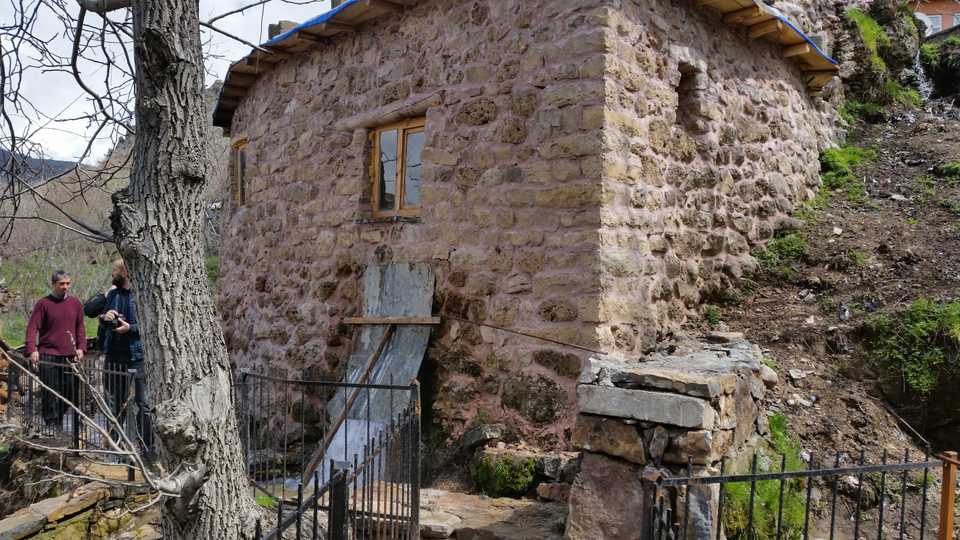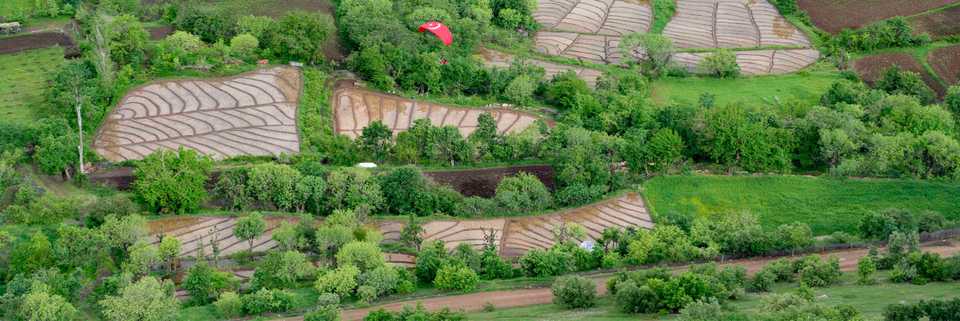HAKKARI, Turkey — On a bright April day, District Governor Temel Ayca visits a newly renovated 400-year-old sesame mill on the outskirts of Cukurca, a border district in eastern Turkey.
Cukurca is mostly known for its troubled past, in which the Turkish army suffered its biggest casualties from the PKK terror attacks. The decades of violence had pushed the district administration to prioritise security over local problems until Ayca took over as its governor in September 2017 and changed that approach. He was quick to zero in on domestic issues ranging from fixing the roads to restoring old ‘castle houses’ at the foothills of the Kaletepe mountain.
On any given day, if he’s not accompanied by heavily armed security guards, one could mistake him for a philanthropist, someone who’s devoted to lifting people out of poverty.
One of his flagship governance programmes is the Zap project, which aims to revive ancient organic agricultural techniques that Cukurca’s Kurdish farmers have used for centuries, producing tahini, corn, rice and beans, honey, walnuts, and several other products.
“In order to realise the Zap brand project, we needed a mill, and there was just one active mill in the village of Narli at the entrance of the town,” Ayca told TRT World, while visiting the newly restored hydel power mill.

The mill’s daily tahini production is about 70 to 80 kilograms per day, according to Ayca. He also aims to reactivate other defunct mills in the area.
“[The mill] works for 24 hours [every day],” said Memduh Olmez, the newly reactivated mill’s operator, who is originally from the Gecimli village, where his father and grandfather were also operating their mill in the past.
Although Ayca has made a strong impression in the Cukurca community after he oversaw the renovation of shops in the district’s main avenue and also repaired the region’s broken roads under the mentorship of the Istanbul metropolitan municipality, it’s the Zap agricultural project that makes his leadership distinct.
Through Zap, Ayca not only envisions building a self-sufficient agricultural community but also aims to develop an online shopping app to commercialise local farmers’ products both inside and outside Turkey.
Linked to ancient Mesopotamian territories, Cukurca’s fertile lands offer farmers the best climate and soil conditions for sesame, rice and corn cultivation.
But during the 1990s, with the PKK constantly launching deadly attacks in the area, most of the villages in Cukurca, especially the ones next to the Iraq border, were forcibly evacuated by the Turkish army to limit the violence.
The PKK, which is recognised as a terrorist organisation by Turkey, the US, and the EU, has launched a three-decade armed campaign against the Turkish state, resulting in tens of thousands of casualties.
As a result, agricultural practices suffered and most farmers in predominantly Kurdish-populated regions struggled to make ends meet. Cukurca was one of the worst hit districts.
Ayca wants to leave the region’s troubled past behind and inspire change to secure its future. After the governing AK Party’s peace process to disarm the PKK groups in Turkey collapsed in July 2015, Ayca was appointed as a central government trustee, called the kayyum, and he also replaced the mayor of the People’s Democratic Party (HDP).
PKK’s trench warfare in 2015 was one of the main reasons behind the collapse of the peace process.
In the last three years, according to the district’s high-ranking security officials, the government has built 50 security posts across Cukurca, covering civilian areas as well as far-off and sparsely populated mountain villages.
TRT World was able to visit one of the security posts on the Turkish-Iraqi border.
“When I took over, the security had been [almost completely] ensured here. We have entered a period when we can serve people,” Ayca said.
First, Ayca worked on branding agricultural products and getting their registration. After that, he moved to the next stage, talking to local farmers and persuading them to work for the project.
So far, 30 farmers have signed the contract to cultivate 1,065,000 square metres of farmland for the Zap project.

“With the launch of the project, we were able to open up three neighbourhoods for resettlement,” Ayca said.
Kemal Demir, 65, who is from Cukurca’s Gundes village, is one of the project’s contracted farmers. He has been a farmer since his childhood under the tutelage of both his father and grandfather, learning how to asses the soil for the right type of crop to grow in different seasons.
In an extensive interview in a local restaurant, which was an abandoned and decrepit house before its renovation, Demir explained to TRT World the ancient agricultural technique he learned from his ancestors to sow their land step by step.
“We [the people of Cukurca] were like a bag whose mouth was tied up and can not breathe at all before the commission of the district governor. But after him, the bag has exploded because he has provided opportunities to local farmers,” Demir said, speaking passionately in Kurdish.
Demir thinks that through the Zap project, Cukurca’s fertile lands, which he described as ‘undiscovered treasures’, have regained their old value because local farmers are able to sell their products at good prices.
“In the past, if I produce one tonne of sesame, I was not able to sell it at a good price, leaving me disappointed most of the time. But now, the district governor buys our products and I receive my money to my bank account directly,” Demir said, pointing out that the project has enriched local farmers.
Demir wants to double his production next year, predicting similar trends in other crops.
Zilan Turan, a 24-year-old Cukurca native, is one of the sellers of Demir’s products in one of the local shops.
“Our sales are very good and our customers are very happy. Particularly, they are very happy about the quality of our tahinis and want to reorder them,” Turan told TRT World.
Despite having started sales just a month ago, they are doing very well through direct sales and indirect sales via Whatsapp or online shopping. “Every day, we have sales valued from 2,000 lira ($350) to 3,000 lira ($520),” Turan said.
There have already been numerous demands from other provinces to acquire franchises across Turkey, Turan said.
Demir, the other farmer, is consumed by one thought, however, and that is the end of Ayca’s tenure in Cukurca. Although Ayca has given him and other farmers a roadmap, they will still feel alone if not orphaned.
“We regret that he is leaving,” Demir said.










Discussion about this post